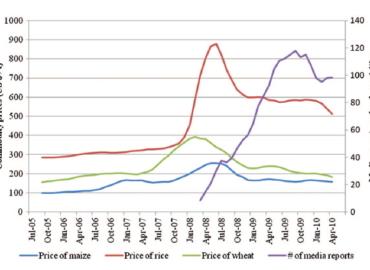Large-scale investments in farmland have been criticized, chiefly, because of questions about the capacity of the countries targeted by these land deals to effectively manage these investments in order to ensure that they contribute to rural development and poverty alleviation. This article questions the idea that this is the only or even the main problem raised by such investments. If weak governance were the only problem, then appropriate regulation—and incentives to manage such investments correctly—would indeed be a solution. However the real concern behind the development of large-scale investments in farmland is that giving land away to investors, having better access to capital to ‘develop’, implies huge opportunity costs, as it will result in a type of farming that will have much less powerful poverty-reducing impacts, than if access to land and water were improved for the local farming communities; that it directs agriculture towards crops for export markets, increasing the vulnerability to price shocks of the target countries; and that even where titling schemes seek to protect land users from eviction, it accelerates the development of a market for land rights with potentially destructive effects on the livelihoods, both of the current land users that will face increased commercial pressure on land, and of groups depending on the commons grazing and fishing grounds, and forests. The article maps these various levels of critiques. It concludes that we need to do more than impose a discipline on land-grabbing: we need a real alternative to this kind of investment in land.these investments in order to ensure that they contribute to rural development and poverty alleviation. This article questions the idea that this is the only or even the main problem raised by such investments. If weak governance were the only problem, then appropriate regulation—and incentives to manage such investments correctly—would indeed be a solution. However the real concern behind the development of large-scale investments in farmland is that giving land away to investors, having better access to capital to ‘develop’, implies huge opportunity costs, as it will result in a type of farming that will have much less powerful poverty-reducing impacts, than if access to land and water were improved for the local farming communities; that it directs agriculture towards crops for export markets, increasing the vulnerability to price shocks of the target countries; and that even where titling schemes seek to protect land users from eviction, it accelerates the development of a market for land rights with potentially destructive effects on the livelihoods, both of the current land users that will face increased commercial pressure on land, and of groups depending on the commons grazing and fishing grounds, and forests. The article maps these various levels of critiques. It concludes that we need to do more than impose a discipline on land-grabbing: we need a real alternative to this kind of investment in land.
Author: Olivier De Schutter
Published by: The Journal of Peasant Studies (2011)
How-Not-to-Think-of-Land-Grabbing_O.DeSchutter



